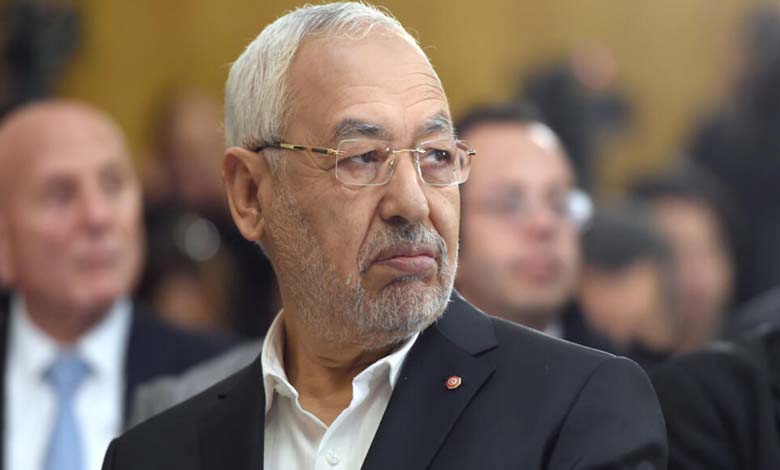Tunisia’s Muslim Brotherhood Entrenched in Rumors: A Blade Without an Edge

In the trenches of misinformation, Tunisia’s Muslim Brotherhood is waging what appears to be its final battle—relying on outdated tools of slander and incitement, after being cast aside by the public and defeated at the ballot box.
As Tunisia moves forward with the July 25 political process, orchestrated campaigns to destabilize the country are intensifying. These efforts are driven by foreign-based digital networks linked to the Brotherhood, targeting state institutions and national leaders.
-
As the election date approaches… Muslim Brotherhood in Tunisia intensifies efforts to disrupt
-
Who is Noureddine Bhiri, the mastermind of the Muslim Brotherhood in Tunisia, accused in the travel case after being sentenced?
President Kaïs Saïed, alert to these threats, stated that the battle for reform includes confronting clandestine networks operating both inside and outside Tunisia. These networks, he said, are behind deliberate smear campaigns run through suspicious, paid online platforms—clearly referring to the Brotherhood, which he labeled “elements discarded by history.”
In a video released by the Tunisian presidency, President Saïed denounced these sponsored digital operations aiming to “disrupt us, but they will not succeed.”
Tunisia has recently faced a wave of fake news circulated via social media accounts linked to the Brotherhood, aimed at discrediting the current regime. Claims include allegations of abuse against detained members of the Ennahdha party, along with attacks on the state’s handling of irregular migration.
-
Saied is determined to eliminate the Muslim Brotherhood in Tunisia… Details
-
The Ennahdha Movement collapses… Crises hit the Muslim Brotherhood in Tunisia
A Sustained Campaign of Destabilization
Observers of Tunisia’s political scene argue that Brotherhood leaders abroad continue to wage a fierce propaganda war against President Saïed, despite the legal actions taken by Tunisian courts against paid digital pages over the past two years.
Tunisian political analyst Abdelrazak Raïs noted that President Saïed’s claims are based on verified security reports. These smear campaigns, he explained, are designed to manipulate public opinion against the president and undermine the July 25 process, which struck at the Brotherhood’s political and financial interests, and weakened their influence within the state.
Raïs further argued that Ennahdha is exploiting every opportunity to sow disorder and disrupt national stability. He claimed the movement has employed foreign-based operatives to spread disinformation and incite chaos in the country.
-
The leaders of the Brotherhood in Tunisia before the judiciary.. The start of the investigations of “Deportation of Terrorist”
-
After the failure of the Brotherhood in Tunisia.. Is Kais Saied ending the legacy of Ennahdha and its corruption?
Rumor Networks Engineered Abroad
Having lost the ability to mobilize public support, the Brotherhood has shifted to a campaign of defamation—allegedly led by the sons of Ennahdha leader Rached Ghannouchi, his son-in-law, and other Islamist figures living abroad.
Tunisian courts have already initiated legal proceedings against eight websites and social media pages, aiming to identify those responsible for exploiting digital platforms to create, disseminate, and promote false information. These actions were deemed intended to defame individuals, harm public safety, and undermine state interests.
To combat these malicious rumors, President Saïed issued Decree No. 54 on September 16, 2022, targeting cybercrimes related to information and communication systems. The decree was designed to curb the growing threat posed by the Brotherhood’s disinformation campaigns.
-
Ghannouchi before the courts… Terrorism Surrounds the Head of the Brotherhood in Tunisia
-
Tunisia’s Muslim Brotherhood Entrenched in Rumors: A Blade Without an Edge
-
Tunisia’s Muslim Brotherhood Pursues Internal Destabilization: What’s New?
-
Conspiracy 2: Tunisian Judiciary Faces Deepest Muslim Brotherhood Plot to Infiltrate the State
-
Tunisia’s Muslim Brotherhood and the Recruited Fighters Case: Verdicts Close a Dark Chapter
-
Tunisia’s Muslim Brotherhood: Are the Recent Judicial Rulings Paving the Way for the Dissolution of Ennahdha and Its Classification as a Terrorist Organization?












